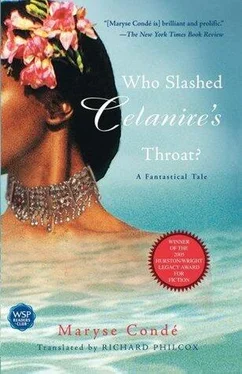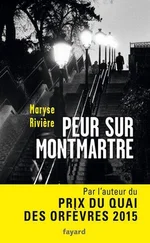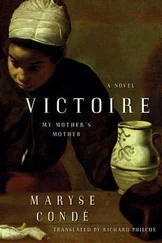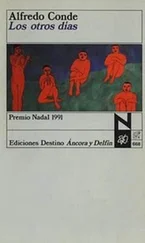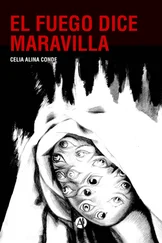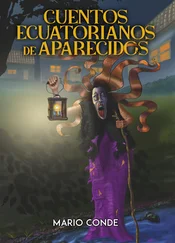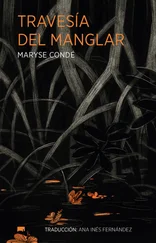
Crimes between Africans arouse little interest. Genocide, pogroms, tribal warfare, ethnic cleansing — those people kill themselves and nobody says a word.
But this murder was an exception, for Hakim was of mixed blood, the illegitimate son of a distinguished colonial administrator who had served with distinction in Upper Senegal. The press had little trouble tracing the father: Robert Delafalaise, author of a remarkable anthropological study, the first of its kind in any case, Les Bambara de Ségou et du Kaarta . The incident was hotly debated. For those who opposed France’s colonial endeavors — and there were quite a few, to tell the truth — it was proof, one more, of the crimes committed by the “gods of the bush,” as the governors-general, governors, and district commissioners were called. When they were on a tour of inspection, they showed no respect for the local chiefs and demanded a droit du seigneur over the local beauties. If they got them pregnant, they would heartlessly pack their offspring off to a Home for Half-Castes. Hakim was a victim, nothing but a victim. For the defenders of colonization, however, this crime illustrated the dangers of crossbreeding, the savagery of those half-castes capable of exterminating both the African and the European race, if you didn’t watch out.
What exactly had happened that evening?
Only the mabouyat lizards clinging to the beams, the bats hanging upside down in the straw on the roof, and the toad squatting as usual on the threshold would, if they could talk, have been able to describe the approaching cortege of death. Kwame Aniedo had nothing to say, and for good reason. The dead are never asked to speak. Betti Bouah testified that after having reread a few pages of Jean-Jacques Rousseau’s Confessions, he had gone to bed early. Around midnight he had been woken by the noise of a violent quarrel. He was on the point of putting an end to the din when his third wife, who had just been importuned by a nightmare and was sharing his bed that very night, prevented him from doing so. There would be enough time in the morning to tell Hakim what he thought of him. He had therefore gone back to bed. Not for long. Half an hour later, the shriek of an animal having its throat slashed put the house in pandemonium. Terrified, the infants who were sleeping in their mother’s beds began to scream in unison. He had mustered four servants and, armed with a flintlock gun, had gone downstairs. The door to Hakim’s room was wide open. On the ground Kwame Aniedo was lying in a pool of blood, a Sheffield switchblade stuck in his belly. Stunned, Hakim was sitting on the bed, soaked in blood. Betti Bouah and the servants had grabbed him without meeting any resistance and called the militia.
After having rotted for two months in the jail at Grand-Bassam, Hakim was transferred to the prison in Dakar, where in a state of stupefaction he was unable to reason his defense. He merely repeated he was a harbinger of death. Mr. Rozier, the astute young attorney who had been requisitioned for the case, guessed his sexual orientation. Unable to get any information out of Hakim, he came to his own conclusion. Overexcited at the idea of Celanire’s nudity, Kwame Aniedo had probably got closer to Hakim and demanded a better description. Worked up by his proximity, his smell, and an excess of alcohol, Hakim had lost his head and hurled himself onto Kwame Aniedo. Horrified, the latter had drawn his Sheffield switchblade to ward off his advances. During the struggle Hakim had grabbed the knife and defended himself.
But given the date these events occurred — we are somewhere around 1903—Mr. Rozier did not dare pronounce the word homosexuality, as we would have done today. At that time homosexuality was considered a repulsive vice. He was afraid of alienating once and for all the jury composed of narrow-minded Frenchmen, minor civil servants, and tradesmen. He launched into a petty argument. Hakim was left-handed and would have been unable to deal such a blow. Everyone in Bingerville could vouch for the affection he had for Kwame Aniedo, who even called him “Papa.” On the fateful night fifty pairs of eyes had seen them leave Njiri’s bar the best of friends. The prosecution claimed a drunken brawl had broken out between the two. The prosecutor presumed. He was incapable of producing evidence, of showing why Hakim had suddenly turned on Kwame Aniedo and stabbed him over twenty times. That was the weak point in the case: the motive for the crime! It was more likely that one of those criminal types who thrived at Bingerville had followed the two men home, broken in, tried to rob them, and, surprised by Kwame Aniedo, had butchered him. This clumsy fabrication convinced nobody, and rightly so. Nevertheless, in spite of the inexperience of his defense attorney, Hakim would have been sentenced to only a few years in a colonial jail — the man he had killed, though an Akan crown prince, counted for little in the eyes of the colonial authorities — if Thomas de Brabant, governor of the Ivory Coast, had not intervened in person. He sent a confidential memo to his superior, the governor-general of French West Africa, informing him of the real personality of Jean Seydou, alias Hakim. In his classes at Bingerville he had denigrated France’s civilizing mission. He was a ringleader, a hot-head, a formidable agitator, a son worthy of El-Hadj Omar Saïdou Tall, his ancestor on his mother’s side. Those very words scared the life out of everyone. Our unfortunate hero got the maximum sentence and was banished to the penal colony in French Guiana.
7
Hakim could smell the sweet baked-bread scent of the ocean.
Straining his ears, he could even hear its commotion and, depending on the day, assess its humor — ever so gentle or ever so angry. But his eyes could not see it. The prison where he was kept was housed in the ruins of a fortified residence whose back faced the island of Gorée. Long ago slaves from all over Africa were stored there awaiting shipment to the little island offshore. The prison was a round chamber where three hundred men and women once stood chained by the neck to the wooden supports bolted to the ground. At present, the only inmates were a handful of poor wretches who had not paid their taxes or refused to carry out their corvée . At noon, three Sisters of Charity, who treated their dysentery and their fevers, brought them a dish of fish with rice. In the evening the old Serer warden waddled in on his crooked legs and served them soup. Hakim was given preferential treatment — salad, fruit, papayas, and mangoes. He was the only prisoner they had ever seen sentenced to hard labor in a penal colony, and they were impressed. He was waiting for his transfer to Serouane, a small town on the coast of Algeria, where he would embark on a ship that would take him halfway around the world to French Guiana. For months he had remained in a cell, twelve feet by twelve, up against the side of the main building. He relieved himself in a hole dug into the ground. His youth and curly hair broke the heart of the Sisters of Charity. They knew he was a Muslim, therefore damned in advance. Even so they could not help reciting dozens of rosaries, just in case — God is great — they could save his soul.
The only window in the cell looked out onto a wall. All day long, the sun used it like a palette to mix its colors. It began with a milky white, followed by a light yellow. Then a deeper yellow, which grew paler and paler, finally turning white again, unbearably white. His eyes were dazzled by the glare, hurt, and made him blink. The heat shimmered. And then the white began to fade. It took on every degree of blue, changed to violet, and turned an ever darker shade of gray. Finally turning to black. Jet black.
Читать дальше
